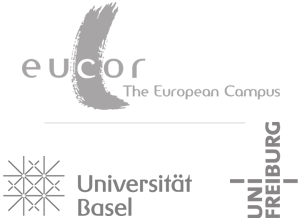Usage-based language learning: perspectives from L1 and L2 acquisition (Workshop)
| Date | Wednesday, 21st October 2015 |
| Location | Universität Basel, Kollegienhaus (Petersplatz 1), Regenzzimmer 111 |
veranstalter: Marjolijn Verspoor (Groningen), Adele E. Goldberg (Princeton), Elizabeth Wonnacott (UC London) u.a.
ansprechpartner: Dr. Florent Perek
email: florent.perek@unibas.ch
web:
institution: HPSL
language: Englisch
location institution: Basel
date_raw: 21. Oktober 2015, 09:00 Uhr – 18:00 Uhr
date_sort: 21.10.2015, 00:00:00
Workshop “Usage-based approaches to first and second language acquisition:
Contrasts and convergences”
October 21, 2015
Florent Perek and Heike Behrens
Invited speakers: Adele Goldberg (Princeton University), Marjolijn Verspoor
(University of Groningen), Elizabeth Wonnacott (University College London)
The usage-based approach holds that linguistic knowledge is entirely derived from and
constantly shaped by experience with language (Beckner et al. 2009, Bybee 2010). Over the
past decades, this view has gained momentum in many domains of linguistic inquiry. In first
language acquisition, it was widely adopted as an alternative to nativist theories, and usage-
based explanations relying on domain-general abilities, such as pattern recognition and
analogical reasoning, were successfully called upon to explain how infants may acquire their
first language from the input alone (Tomasello 2003, Behrens 2009), without the need to
postulate innate grammatical structures (e.g., Pinker 1989, Chomsky 2002). More recently,
usage-based linguistics has also found fruitful applications in the domain of second language
acquisition (Eskildsen 2008, Larsen-Freeman 2011, Ellis 2013), as a framework that
anticipates the well-established role of input and interaction in the development of L2
competence, where nativist accounts have met with mixed success. One major virtue of this
convergence is that it potentially unifies accounts of L1 and L2 acquisition under a broader
cognitive theory of language learning. Using common concepts and relying on similar
explanations allow for a more systematic comparison of the psychology of language
acquisition in different settings.
This workshop will seek to examine whether the acquisition of a second language can really
be claimed to be as usage-based as that of a first language, and whether predictions of usage-
based models hold to the same extent for L1 and L2 learners. The existence of many
commonalities noticed between first and second language development does not mean that
the obvious differences (e.g., setting, age) should be ignored, and L2 acquisition should not
be construed as a simple variant of L1 acquisition, even though it certainly draws on similar
abilities. Typical differences between L1 and L2 learning, such as age, interference from L1,
and the role of explicit vs. implicit learning, must be duly taken into account and their
interaction with usage-based processes examined.
The workshop will focus on the following topics:
- Specific usage-based studies of L1 and L2 acquisition.
- Comparison of the sequence and rate of acquisition of the same structure by L1 and L2 learners.
- Properties of the input enabling or facilitating acquisition, comparison of the relative importance of these factors in L1 and L2.
- Interaction of usage-based processes of acquisition with individual or contextual factors.
- Usage-based vs. other explanations for patterns of development in L1 and L2.
- Impact of classroom teaching on usage-based patterns of development, and conversely, applications of usage-based findings to classroom teaching.
Beckner, C., Blythe, R., Bybee, J., Christiansen, M. H., Croft, W., Ellis, N. C., Holland, J., Ke, J.,
Larsen-Freeman, D., & Schoenemann, T. (2009). Language is a complex adaptive system.
Position paper. Language Learning, 59(Supplement 1), 1–26.
Behrens, H. (2009). Usage-based and emergentist approaches to language acquisition. Linguistics,
47(2), 383–411.
Bybee, J. (2010). Language, usage and cognition. Cambridge: Cambridge University Press.
Chomsky, N. (2002). On Nature and Language. Cambridge: Cambridge University Press.
Ellis, N. C. (2013). Second language acquisition. In Trousdale, G. & Hoffmann, T. (eds.), Oxford
Handbook of Construction Grammar (pp. 365-378). Oxford: Oxford University Press.
Eskildsen, S. (2008). Constructing another Language – Usage-Based Linguistics in Second Language
Acquisition. Applied Linguistics, 30(3), 335–357.
Larsen-Freeman, D. (2011). A complexity theory approach to second language
development/acquisition. In Atkinson, D. (ed.), Alternative approaches to second language
acquisition (pp. 47-72). London & New York: Routledge.
Pinker, S. (1989). Learnability and Cognition: The Acquisition of Argument Structure. Cambridge,
MA: MIT Press/Bradford Books.
Tomasello, M. (2003). Constructing a Language: A Usage-Based Theory of Language Acquisition.
Harvard University Press.
Program:

